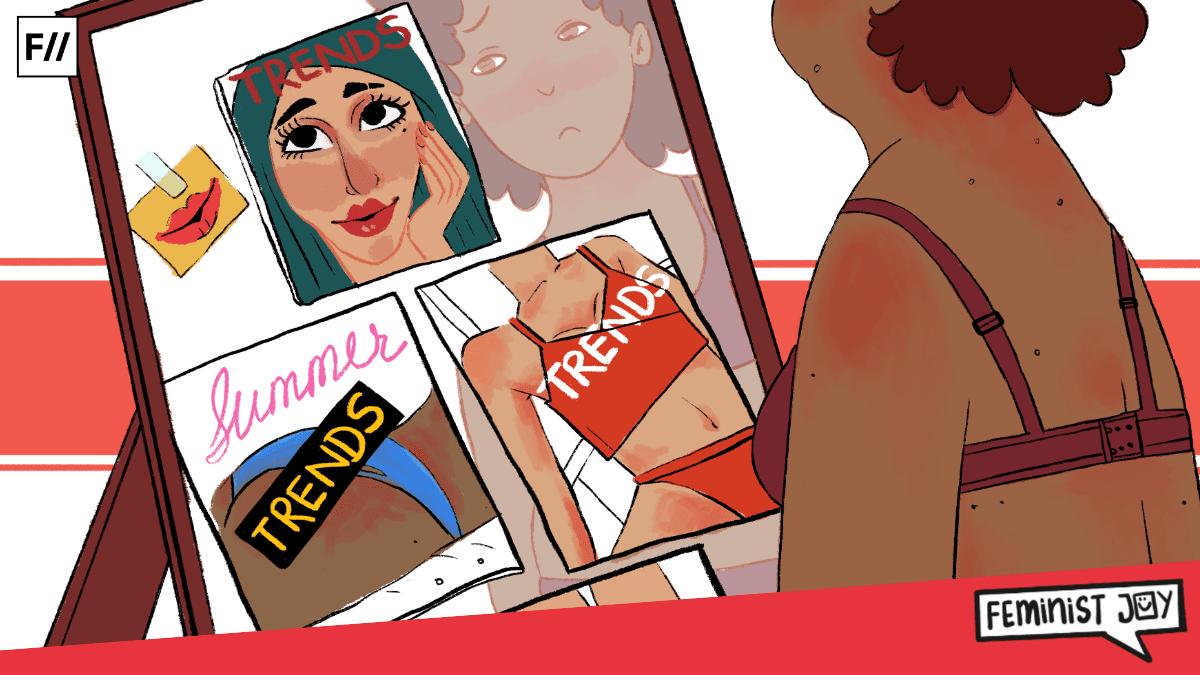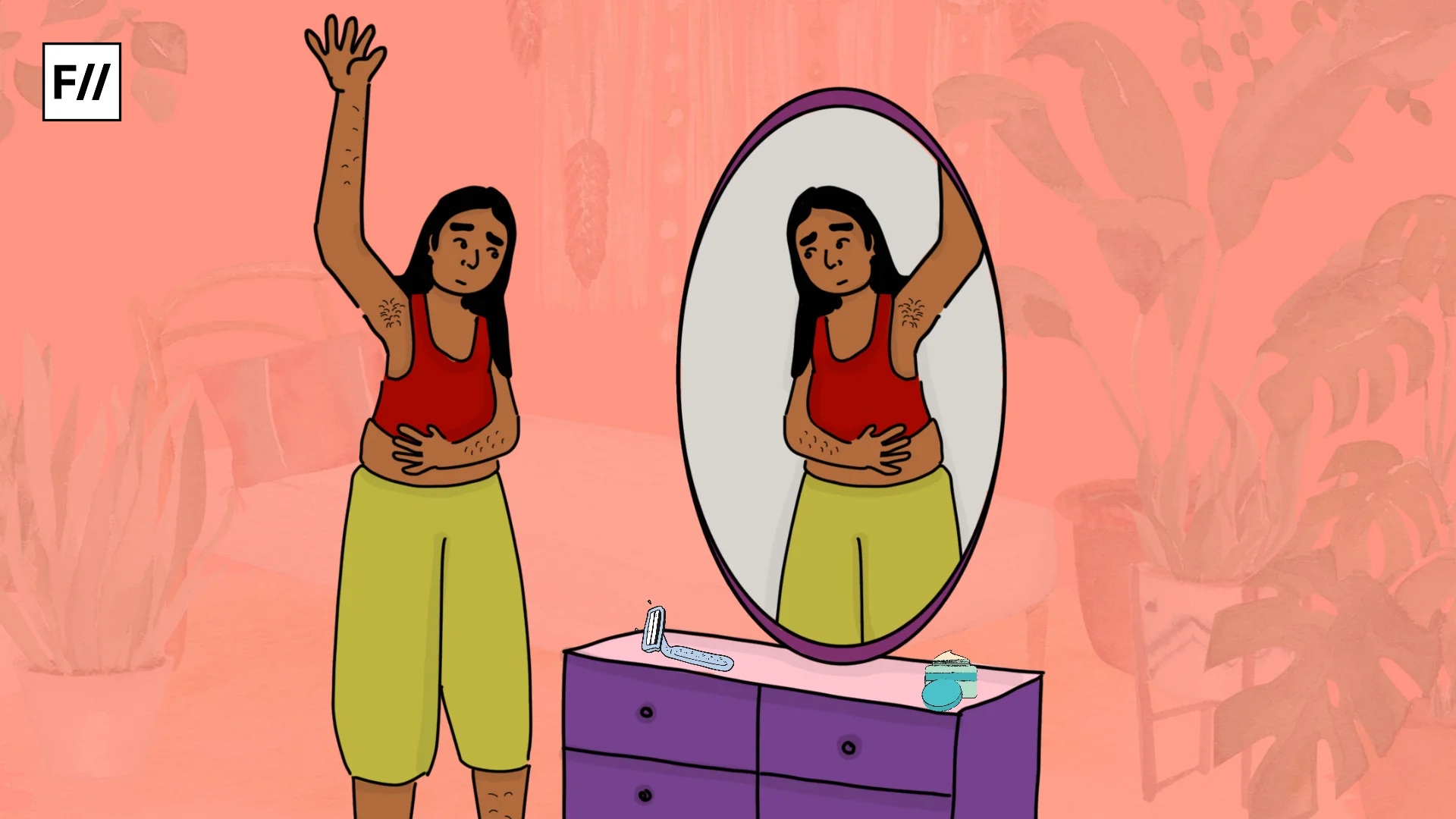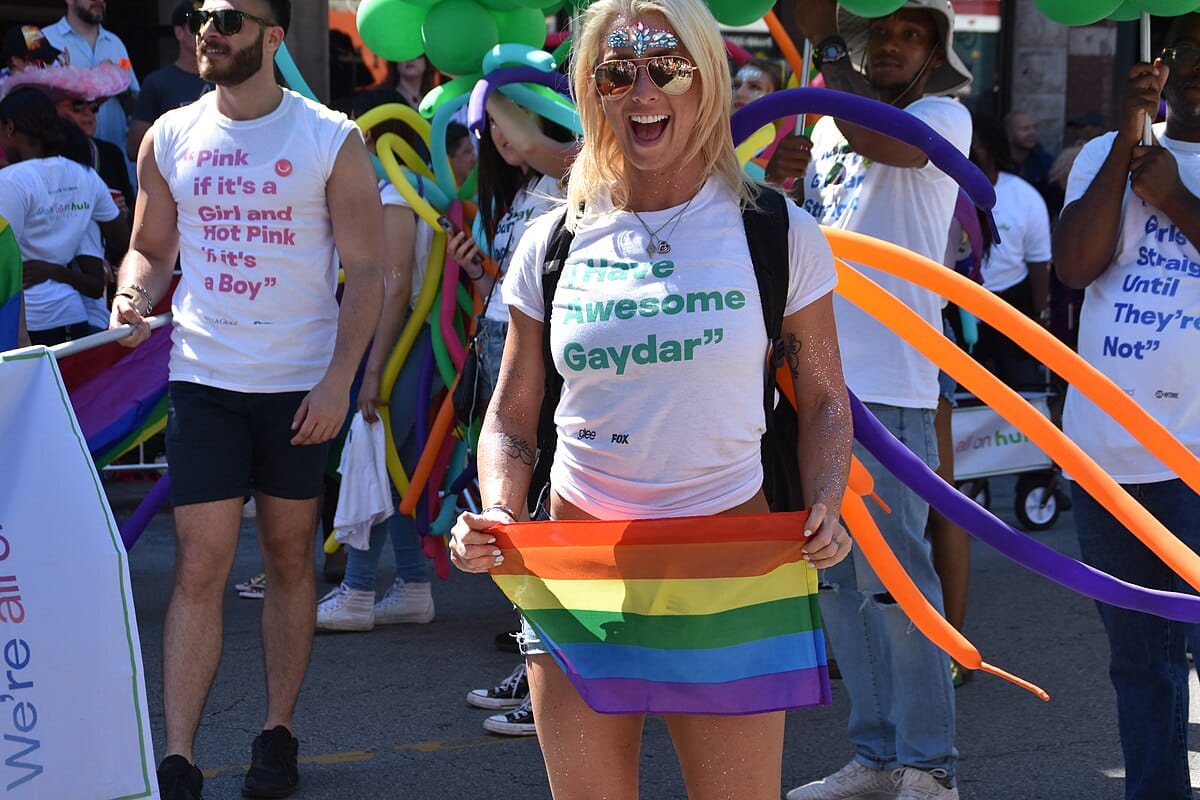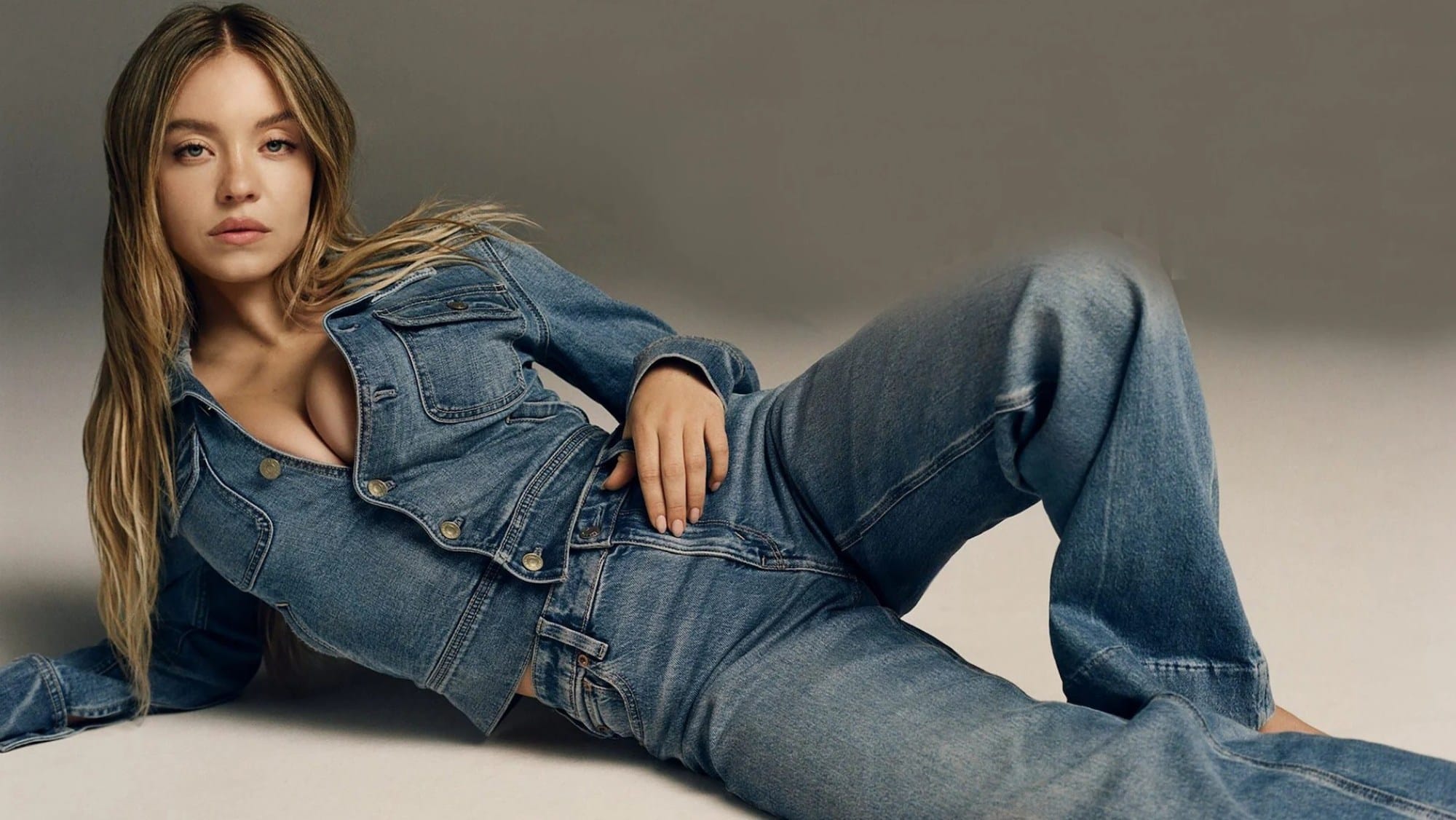Living in a community as a Brown girl, in a generation and a society that seems to have accepted a lighter skin tone as the standard measure of beauty, was never easy. Some of my relatives would look at me and tell me I was ‘dark,’ and ugly; words that hurt me so much and would make me wish to turn into a white man out of agitation.
Nevertheless, despite such animosity, I heard only one voice – my father’s. Sometimes he would have it expressed, “Dusky skin colour is beautiful; that is one of the most beautiful colours in the world.”
What people wanted to throw at me from outside the ditch, their thoughts were the building blocks for my feminism.
I remember as a child not understanding the meaning of my father’s encouragement as much as I do now. I was just asking for clarity regarding the confusing drama of teenage life and inferior standards of beauty that I never seemed to fit into. I recall once watching magazine covers and finding hardly any publication featuring dark-skinned models with their skin or facial structures being glorified in the same way as mine was. This I shall say led to the experience of marginalisation where one begins to feel as though their existence is not as important because of their colour.
Most of the encounters regarding my body turned into horrible battles that took place during family celebrations. “If only you were a shade lighter,” some people would want to tell you out of what they thought was; concern. Such comments leave their mark on one’s psyche making up a part of one’s self-identity and becoming a reference point.
I realised about strong personalities like Audre Lorde who talks loudly and says, “I am not free while any woman is unfree, even when her shackles are very different from my own.” Her words resonated with me and sparked a realisation.
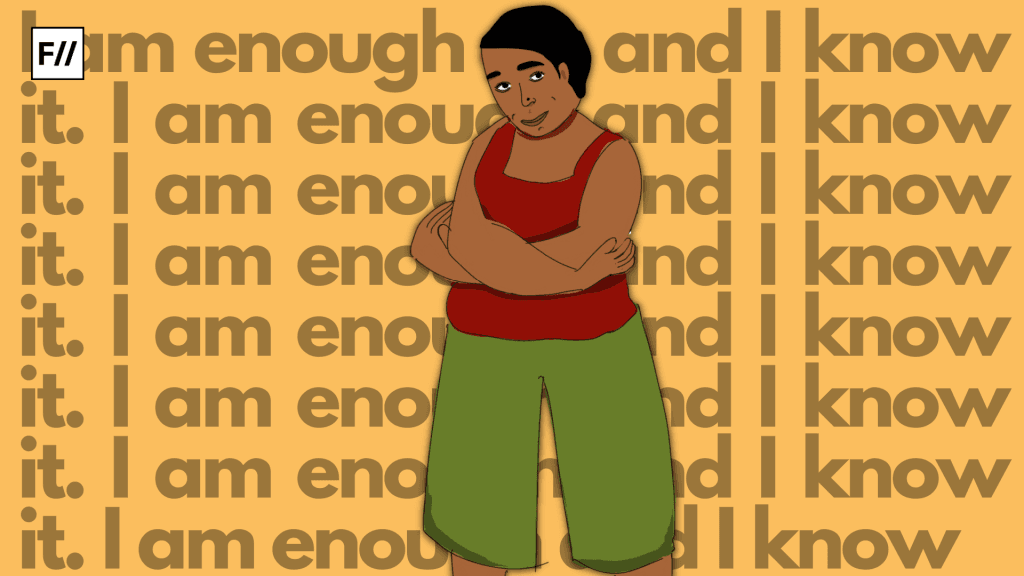
It wasn’t until I read more books written by Black authors and Black activists that I was able to find a part of myself in these pieces. They were sharing stories like mine, but these stories also included the joys of duskiness in the world. It triggered in me a sense of pride, this joy, you know, having black skin isn’t a drawback, it is actually a strength.
Something so profound that it used to only be a phrase – “Black is beautiful,” I now live, breathe and operate. It reaffirms and is a tribute—a message that informs that our dusky is not only awesome, but it is a historical, cultural treasure.
I’ve learned to embrace and embrace the different range of skin colour, hair and facial structures that depict different dusky colours yet comprise one race. Every time I witness another dusky woman rocking her natural hair or appreciate her fine dusky skin, I get overwhelmed with happiness. We are deafening our voices, we are now dictating what beauty looks like in this generation.
It took me even a whole year of learning about popularity to embrace a different perspective and self-care has been a part of building a better me, a feminist as well. Participating in things that make me happy, which could be getting closer to friends, practising yoga and having time with nature, helped me remember that even in suffering, there is joy.
I’ve learned to celebrate small victories: applying makeup where I need to, wearing bright colours that are close to my skin tone or getting a haircut that I desire to display. Every performance turns into a self-indulgence — I have a right to be who I am and to love myself.
Duskiness’s journey is of strength, liberation and gradual acceptance of OURSELVES. The so-called ‘voices,’ of reason—more so societal norms and family expectations—need to be dissociated with the voices which give hope and strength; adjectives like the one my father used. Studying black culture and reading black literature has taught me not only to appreciate myself and embrace the duskiness inside of me but also to appreciate blackness in general.
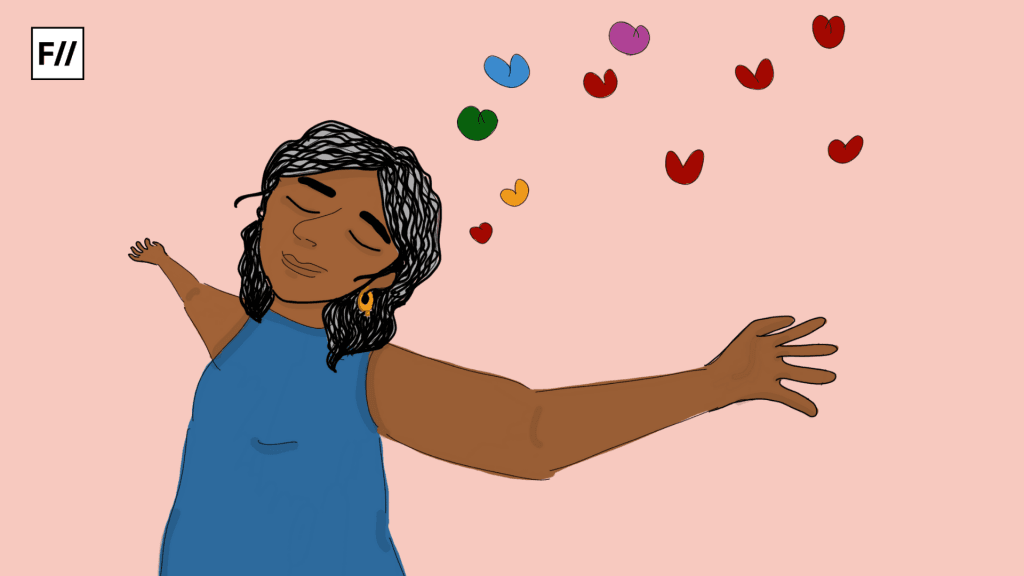
With this realisation, I acknowledge that self-acceptance is a highly empowering method of living in a world that repeatedly tries to nullify the value of a person. Every simple achievement like that of wearing my natural hair or pulling off a blouse that blends with my neck, amply reminds me that black is beautiful. Collectively we are changing the narrative regarding beauty and representation, and constructing our reality that tribute to our past and embraces the present.
Culturally, being different is embraced and so many people see that every hue of being dusky is perfect. In conclusion, this is not an empowering who I become journey; it is an empowering others and reminding ourselves and one another that we all deserve to be loved, respected and celebrated journey.
About the author(s)
Ainee Ilyas is a writer and researcher with a strong foundation in law and human rights, specializing in the intersections of gender, social justice, and public policy. Passionate about feminist thought, her work amplifies marginalized voices and challenges conventional narratives. With experience in editorial writing, policy analysis, and rights-based research.
